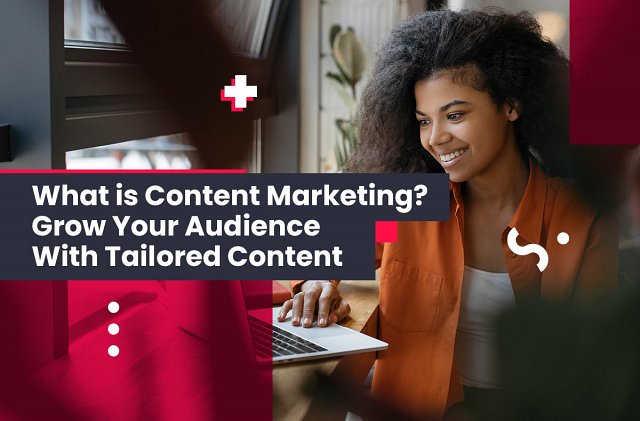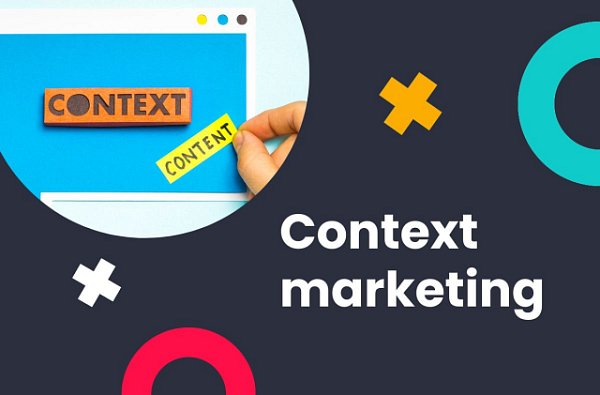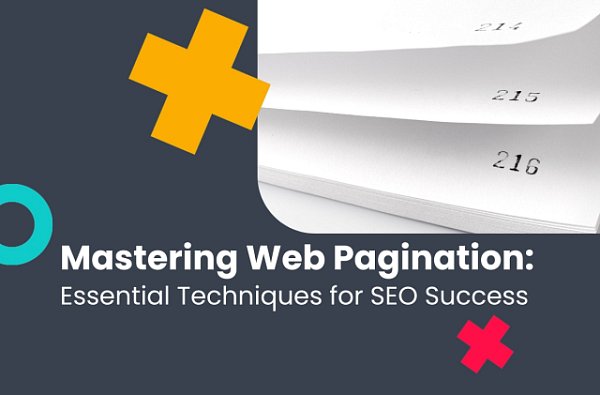What is Content Marketing? Grow Your Audience With Tailored Content
(12 min. read)

With the right Content Marketing strategy, you can take a virtually unknown product or service and take it to another level with fun, engaging, and informative content. With this guide, you’ll know all you need about creating a successful Content Marketing strategy.
What is Content Marketing?
Let’s start with the definition. Content Marketing is a marketing strategy, realized by creating and publishing high-quality content to specific online audiences. There are several goals that content marketing is set to accomplish, including:
- Attracting new viewers
- Generating leads
- Converting new viewers to customers
- Generating and improving online sales
- Increasing brand awareness
- Engaging your target audience
- And more!
Content marketing is a complex process that starts with identifying your target audience and their needs. After deciding what type of content your audience would consider valuable and what online channel to use for distribution, you’ll need to prepare high-quality content using creative writing skills, a variety of formats, and persuasion skills to convince your audience to make a certain action.
The first instance of content marketing was recorded in 1732, when Benjamin Franklin published the Poor Richard’s Almanack to promote his printing business. Inside the Almanac, Franklin included a wide range of knowledge from various topics, from astronomy to mathematics to poetry. He also wrote down many of his proverbs, which are common in American English to this day.

Source: Adobe Stock
Content marketing can increase sales and improve the perception of your brand among customers at the same time - but simply uploading your content to the internet isn’t enough anymore. First, you’ll need to learn how to create content that people actually want to see.
Okay, but what exactly is meant by Content?
Content, or web content to be more specific, is any text, visual, or audio information, created using digital technologies and distributed on the Internet. This includes all sorts of documents and articles, images, audio files, videos, animations, and many more.
This content is what prompts internet users to visit websites and connect with them. You can’t just create any content and expect visitors to arrive - you’ll actually need to go to great lengths to not only discover what type of content your potential customers want and need, but also to create it, organize it, and publish using industry-best practices and SEO techniques to promote your content to online viewers.
What makes Content Marketing important?
There are tons of strategies and methods for digital marketing - what makes content marketing so special?
Content is what drives the Internet forward - without it, it would be an empty, barren place. Whether you’re seeking to boost your brand’s social media page or reach your customers through email marketing, you’ll need high-quality content either way.
But not just any content - highly targeted, tailored, and engaging content that will resonate with your audience and bring them closer to your brand. Content marketing isn’t only a tool used to increase sales. Instead, it’s an advanced, all-encompassing digital marketing strategy that requires careful planning, consistency, and a lot of market research.
Keep in mind that it’s not early 2000s anymore and plenty of great quality content has already made its way to the web - your viewers don’t have to and won’t continue to browse your content unless it sparks their interest, provides a solution to their issues, entertains them, or otherwise feels valuable in any meaningful way.
Types of Content Marketing
As you can imagine, there are no limits to what form online content can take - the only limits are your imagination and creativity. Don’t be afraid to experiment with different types of content marketing and different distribution channels. In fact, let’s go over some of the most popular types of content marketing to give you a better picture:
Social Media
Now often described as its own field of digital marketing, social media marketing is nothing else but a type of content marketing - one that’s focused on publishing specialized content on social media pages like Facebook, Instagram, TikTok, and more.
More than 4.7 billion people around the world use some type of social media platform, according to this year’s research, which makes up more than 90% of internet users worldwide. With such a massive potential audience, no wonder all brands big and small try to make the most of their social media pages by combining paid ad content marketing with engaging content. What content can achieve that ads can’t is bringing organic traffic - users who view your social media not because of an ad, but because they found your content valuable.
Blogs
Blogs used to be the outlet for homegrown travel and DIY enthusiasts who want to share their experience and tips with anyone who might be searching for similar information on the Internet. Nowadays, while you might hear less about people becoming bloggers, there are more blogs being created each day now than ever before. How so?
Not only individuals can publish a blog post - brands publish them too, as they can be an extremely effective tool in building positive brand image and attracting online traffic. Content marketers combine high-quality, engaging content with the latest SEO techniques to deliver content that’s highly effective, but also enjoyable to read.
Infographics
Whenever you want to present a range of information in a digestible form, there is no better way of doing it than using an infographic. An infographic displays data and information in a visual, quickly readable form that’s clear and understandable to your audience. They mix text and images to communicate with your viewers effectively, and can easily break down complex topics into organized content. Whether you’re publishing them on social media or on your web page, infographics are an extremely efficient type of content.

Source: Adobe Stock
Websites
Your own website will also need some content on it - otherwise, it would be empty and extremely boring, which we want to avoid. For any digital business, visibility and online presence are key to customer outreach and business growth. With a strong online presence, your customers will find you on their own - but that requires a well-thought-through content marketing strategy that incorporates creating engaging and valuable content for your landing page.
Website content can be a great way of facilitating link building as well.
Video Content
Content doesn’t have to be text-based - it can also be a video. According to Video Marketing Statistics from 2022, more than 70% of customers prefer to watch a short video than read a description. With people watching more and more video content on average (19 hours of online video content per week, up from 18 hours last year), you can expect video content marketing to become even more popular than it already is. And let’s not forget about YouTube, Twitch and other video-based social media platforms that create ample opportunities for influencer marketing.
Podcasts
Podcasts have been growing extremely fast during the global pandemic - the podcast market revenue in the United States alone increased by over 250% between 2020 and 2022, and we now have more than 125 million monthly podcast listeners in the U.S. itself. Podcasts present a great marketing opportunity for many industries, and are expected to continue growing in the upcoming years.
Key benefits of Content Marketing
We know what content marketing is and what its types are - but what are its potential benefits for businesses?
There’s a lot of them, in fact. Let’s take a closer look at some of the most important ones:
Attract more visitors
First, content marketing can increase your visitor numbers, meaning more people actually visit your website and get the chance of converting into a customer. There are tons of other similar websites to yours on the Internet, and your brand is just a drop in the ocean - but quality content can attract more visitors, making your website easier to find for search engines like Google, and generating attention that spreads the word about your business.
Connect with your audience
While some managers think that a customer is a customer and that’s that, the customer-brand relation is what drives online sales in many industries, and valuable copy lets you connect and build rapport with your audience.
Content also gives you the chance to be the authority in your field, educating your audience and actually being helpful. Regular ads, on the other hand, rarely bring any value to the audience, only showcasing products and services.
Get your audience engaged
Generating traffic isn’t only about what you do - it’s also about what your audience does. Whenever your audience engages with your content by leaving comments, sharing, or simply leaving a reaction on a social media post, it can increase your online reach and generate a lot of buzz for your business.
Develop a positive brand image
Customers are much more picky than they used to be - especially digital customers.
Don’t simply assume that you’re the best solution available on the market - even if that’s true, you’ll need to actually convince your audience of that first. With great content, you can build a positive brand image and leave a lasting impression on your potential customers, convincing them to use your solution instead of other ones.
Let your audience know about your products and services
Content is also a great opportunity to share information about your products and services. By highlighting a certain issue that your target audience might have, and then describing your products and/
Increase your presence with SEO
Digital content, especially text-based, is a great opportunity to implement a SEO strategy. SEO, or Search Engine Optimization, is a set of practices and techniques for creating websites that will rank highly on Search Engine Results Pages (SERPs), making it much easier to find and access your pages for potential customers.
All you need to know to prepare a Content Marketing strategy
So we know the potential benefits of content marketing - now, let’s cover the exact steps to take for creating a Content Marketing Strategy.

Source: Adobe Stock
Get to know your audience
Before you begin creating your content, think about who you are creating the content for. Who are your viewers and customers? What problems do they have? How do your products and/
To answer these questions, you’ll need to perform market research. Marketers often create customer personas to visualize what your customers might think, like, and prefer.
What are your campaign objectives?
The planning stage continues - think about what you actually want your campaign to achieve and how to analyze its results. If your goal is to generate new leads, you’ll need to think of what content marketing tools to use to measure the effectiveness of your strategy.

Source: Adobe Stock
Establish the Key Performance Indicators (KPIs) for your strategy. These can include traffic, leads, sales, brand awareness, audience engagement, existing customers retention, and more. Each will need a unique way of monitoring changes to gauge whether a campaign is effective or not.
Content Marketing and the Sales Funnel
The Sales Funnel is well-known to any marketer who actually knows a thing or two about what they are doing. Content marketing can target different stages of the sales funnel:
- Near the top of the purchase funnel, we want to increase awareness of our products and services. Content like blog articles, social media posts, and infographics are perfect for that - they make our potential customers aware of their problems and receive a potential solution.
- The middle of the funnel is all about evaluating your product’s/
service’s value. Webinars, educational materials, and other helpful resources can convince viewers that are already aware of the problem, but are still looking to confirm the best solution for it. - Finally, content designed for the bottom of the funnel facilitates conversion. We now have a sales lead that is informed and aware of the issue and the solution your product or service offers. Depending on your industry, this stage accepts a range of content types, including product demos and targeted events, meant to diminish the last traces of doubt and lead your potential customers into the purchasing process.
How costly is a Content Marketing campaign?
There are no universal thresholds for budgeting a content marketing campaign. All companies’ needs are different, and all content marketing campaigns will require a different budget to realize. On average, companies who focus on digital marketing allocate about 30% of their marketing budget for content marketing alone.
SEO analysis
If you want to have a website that’s visible as one of the first search results on Google, you’ll have to perform a SEO analysis and implement the right techniques for creating your content. Google Analytics is a great tool for performing a SEO analysis and can tell you which areas of your website need improvement.
There are also SEO plugins and tools that you can use like Yoast or Surfer. They can be of great help to beginner SEO specialists, but the recommendations they provide for your content can be a bit overzealous - don’t substitute good research with a simple plugin, they are there to guide you, not to do your job for you.
Hiring a copywriter
Now that you’ve planned every little detail of your strategy, you’ll need the right content marketing team to realize it. Depending on the type of your content, you might need a different set of specialists, but almost every single one requires a copywriter.
A copywriter is someone skilled in the art of copywriting - or creating online written advertising content, including blogs, infographics, sponsored articles, social media posts, and more. But how to find one?
The easiest way to find the right copywriter for you is by using WhitePress® - a content marketing platform designed for the modern age. With a free account and just a few clicks, you can find the perfect copywriter or journalist for your brand, along with high-authority websites to publish sponsored content on to improve your SEO.
Bottom line: Content Marketing can boost any business

Source: Adobe Stock
After reading this lengthy guide, you should have a good grasp of what content marketing is, what types of content can be created and published on the Internet, and what benefits content marketing can bring digital businesses. More so, you know what a content marketing strategy is, and how to prepare high-quality content that will generate organic traffic and guide your business to growth.
It would be impossible to write down everything related to content marketing in just a single blog post - it’s an extremely wide field that is constantly developing and changing every single day. For more guides and insider advice on digital marketing, go ahead and check out the rest of our knowledge base and become a content marketing expert yourself!



